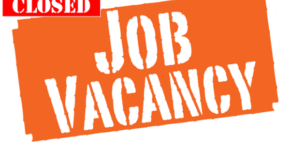[fusion_builder_container hundred_percent=”no” equal_height_columns=”no” menu_anchor=”” hide_on_mobile=”small-visibility,medium-visibility,large-visibility” class=”” id=”” background_color=”” background_image=”” background_position=”center center” background_repeat=”no-repeat” fade=”no” background_parallax=”none” enable_mobile=”no” parallax_speed=”0.3″ video_mp4=”” video_webm=”” video_ogv=”” video_url=”” video_aspect_ratio=”16:9″ video_loop=”yes” video_mute=”yes” video_preview_image=”” border_size=”” border_color=”” border_style=”solid” margin_top=”” margin_bottom=”” padding_top=”” padding_right=”” padding_bottom=”” padding_left=””][fusion_builder_row][fusion_builder_column type=”1_1″ layout=”1_1″ spacing=”” center_content=”no” hover_type=”none” link=”” min_height=”” hide_on_mobile=”small-visibility,medium-visibility,large-visibility” class=”” id=”” background_color=”” background_image=”” background_position=”left top” background_repeat=”no-repeat” border_size=”0″ border_color=”” border_style=”solid” border_position=”all” padding_top=”” padding_right=”” padding_bottom=”” padding_left=”” margin_top=”” margin_bottom=”” animation_type=”” animation_direction=”left” animation_speed=”0.3″ animation_offset=”” last=”no”][fusion_text]
Making it Possible for Everyone, Every Community and Every Sector
[/fusion_text][fusion_imageframe image_id=”14202″ style_type=”none” stylecolor=”” hover_type=”none” bordersize=”” bordercolor=”” borderradius=”” align=”center” lightbox=”no” gallery_id=”” lightbox_image=”” alt=”” link=”” linktarget=”_self” hide_on_mobile=”small-visibility,medium-visibility,large-visibility” class=”” id=”” animation_type=”” animation_direction=”left” animation_speed=”0.3″ animation_offset=””]https://www.ehainigeria.org/wp-content/uploads/2018/07/cbshipknowledgeSeries-300×300.jpg[/fusion_imageframe][fusion_text]
Health for All is a programming goal of the World Health Organization (WHO), which envisions securing the health and well being of people around the world. It originated from the resolution of the 30th World Health Assembly in 1977 that the main social target for Governments and for the WHO should be the attainment by all citizens of the world by the year 2000 A.D. of a level of health that will permit them to lead a socially and economically productive life. To establish this resolution, the World Health Assembly in 1981 unanimously adopted a global strategy for Health for All by the Year 2000. This was the birth of the Health for All movement.
Halfdan Mahler, Director General of the WHO 1973 through 1983, explained Health for All as health brought within reach of everyone in a given country. Health is meant as a personal state of well being, not just the availability of health services. Health for All implies the removal of the obstacles to health – the elimination of malnutrition, ignorance, contaminated drinking water and unhygienic housing – quite as much as it does the solution of purely medical problems such as a lack of doctors, hospital beds, drugs and vaccines.
The economic significance of the movement is embedded in the fact that there is an organic relationship between health and human advancement. Health for All implies that health should be regarded as an objective of economic development and not merely as one of the means of attaining it.
In 2005, the World Health Assembly Resolution 58:33, urged countries to develop strategies that will ensure all people have access to needed healthcare services without the risk of financial ruin at the point of accessing care or after accessing care. Dr. Tedros Adhanom, current Director General of WHO prioritizes the “Health for All” movement thus; ensuring universal health coverage without impoverishment is the foundation for achieving the health objectives of the Sustainable Development Goals (SDGs). “Health for all” must be the centre of gravity for efforts to achieve all of the SDGs because when people are healthy, their families, communities and countries benefit.
However, much has not been achieved in ensuring “Health for All” because one out of every 17 of the world’s citizens lacks access to essential health services (WHO).
At the Nigerian front, research based statistics indicate that less than five percent (5%) of Nigerians have access to quality and affordable healthcare. This is corroborated in a statement made by The Acting Executive Secretary, National Health Insurance Scheme (NHIS), Mallam Attahiru Ibrahim that the NHIS has only had about five million Nigerians registered to it since the inception of the scheme twelve years ago.
The scheme had so far only captured few Nigerians who are civil servants and professionals in the organized private sectors while the rural dwellers are yet to benefit from the scheme. Interventions such as the Community Based Social Health Insurance Programme and state owned health insurance agencies are being implemented to cover other segments of the population. The Community-based programme has the capacity of covering people from the informal sectors who can organize themselves into communities, pool resources together consistently to pay for one another’s health and reduce Out of Pocket Payment for healthcare. Communities are not just by geography, communities can also be formed by people who have common occupational and religious interest.
Considering the afore mentioned poor statistics on access to health in Nigeria and the world, “Health for All” seems like a fantasy but it can be made possible by engaging in consistent efforts to proffer solutions to these questions: How can we ensure a Right to Health for all Nigerians? How can we bring about greater health awareness amongst people? How can “All be for Health” in Nigeria?
[/fusion_text][fusion_text]
All stakeholders involved must be committed and consistent in implementing the following strategies, interventions and research based solutions to achieve Universal Health Coverage in Nigeria.
- Generate and Sustain Political Will
It is important to generate political will towards the achievement of Universal Health Coverage. This should be championed by international health agencies, NGOs, health advocacy agencies and the Ministries of health at all levels in the country. This requires strategic education at all levels of political institutions in the country. Politicians and public office holders should be convinced to view the Health for All goals as an official mandate which must be achieved. However, to sustain this will, strategic education must be consistent. This will ensure Universal Health Coverage is a major agenda of all political office holders in Nigeria.
- Strengthen Primary Healthcare Systems
The 1978, the Alma Ata World Conference identified Primary Health Care as the key to the achievement of Health for all by 2000 A.D. Health for All goal is the basis for the World Health Organization’s primary health care strategy to promote health, human dignity, and enhanced quality of life. According to the WHO, Alma Ata Declaration, PHC is based on five principles; affordable and sustainable health systems development, appropriate (user friendly) technology, intersectoral collaboration, community participation, and equity to access of services. Hence, PHC in Nigeria should be strengthened along these lines. The establishment of National Primary Health Care Development Agency and the 30,000 PHC facilities across Nigeria provide an opportunity for the effective implementation of PHC in Nigeria. Therefore, governments at the federal, state and local levels have to maximize the opportunity provided by existing PHC facilities to strengthen and sustain Primary Health Care systems in order to ensure Universal Health Coverage in Nigeria.
- Build Sustainable Partnerships with Every Sector
Dr Tedros, Director General of the World Health Organization, holds up partnerships as a major way to achieve Health for All. Universal Health Coverage requires building and supporting strong health systems, delivering education to communities to promote prevention, strengthening standards and regulations and creating innovative finance models. UHC requires a health-in-all policies approach that also addresses the social, economic and political determinants of health. There must be strong commitments from players and partnerships between all players. This can be achieved by building capacity for health, in other sectors (for instance, raise awareness of the impact of other sectors’ policies on health and/or the contribution of health to other sectors) and within the health sector (for instance, show how to identify windows of opportunity and build an understanding of other sectors’ policy targets et cetera.).
- Create Demand for Quality Healthcare and Ensure Uptake/Adherence to CBSHIP in Communities
Health for All demands health literacy for all. People must have an understanding of what health means for every individual. It is important to reach “unreached territories and communities” to effectively achieve “Health for All”. This can be achieved by continuous education and sensitization of the public in all sectors and all communities (occupational, geographical and religious). In the process of sensitization, it is important to adapt to grassroots sensibilities by using media they are familiar with and develop messages they can understand and relate with.
- Establish and Enforce Legal Framework
In May 1979, the World Health Assembly endorsed the Declaration of Alma Ata and invited Member States to formulate national policies, strategies and plans to attain this target. One of its important guidelines was that each Member State should have a National Health Policy (NHP). Nigeria is signatory to this policy by virtue of membership to the United Nations hence, the policy must be enforced at all levels. Access to quality and affordable healthcare must be legalized and enforced as a basic human right. Nigerians must also be aware of the legal framework to ensure they are consistent on their respective health insurance schemes. For instance, Lagos State has enforced the law that health insurance is mandatory in the state.
- Ensure Quality Service at Service Delivery Points for Health Insurance Schemes
Healthcare facilities must be well managed to ensure they can deliver quality service. Health facilities must have adequate manpower and medical equipment to perform optimally. It is important to ensure SDPs whether private or public have Basic Life Support (BLS) certified personnel.
[/fusion_text][fusion_text]
Equitable health access is an indicator of a developed society. However, health problems cannot be solved in isolation. Health is too important a matter to be left to health workers and governments…Every Individual, Community and Sector must be involved. Only a popular realization and an active movement of “All for Health” can ensure realization of “Health for All”. Are You for Health?
[/fusion_text][fusion_text columns=”” column_min_width=”” column_spacing=”” rule_style=”default” rule_size=”” rule_color=”” hide_on_mobile=”small-visibility,medium-visibility,large-visibility” class=”” id=””]
This article was developed by Oluwatobiloba Akerele drawing from the following references:
Achieving Health for All http://www.who.int/whr/1998/media_centre/executive_summary6/en/ retrieved on June 28, 2018
Health Insurance Scheme Will Be Mandatory for all Lagosians. Available at https://www.thisdaylive.com/index.php/2018/02/01/idris-health-insurance-scheme-will-be-mandatory-for-all-lagosians/ retrieved on June 28, 2018
[/fusion_text][fusion_text columns=”” column_min_width=”” column_spacing=”” rule_style=”default” rule_size=”” rule_color=”” hide_on_mobile=”small-visibility,medium-visibility,large-visibility” class=”” id=””]
For more insightful contents from Oluwatobiloba Akerele, watch this space.
You can also follow her on social media:
Instagram: @oluwatobiloba_akerele
LinkedIn: @Oluwatobiloba Hannah Akerele
Join the conversation: drop your comments here and follow us on social media
Watch this space!
Featured Image: Google Images
[/fusion_text][/fusion_builder_column][/fusion_builder_row][/fusion_builder_container]







